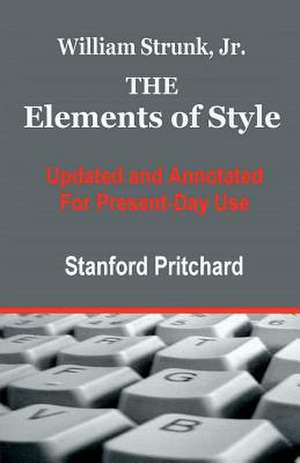The Elements of Style
Autor MR Stanford K. Pritcharden Limba Engleză Paperback
Preț: 65.82 lei
Nou
Puncte Express: 99
Preț estimativ în valută:
12.60€ • 13.69$ • 10.59£
12.60€ • 13.69$ • 10.59£
Carte disponibilă
Livrare economică 31 martie-14 aprilie
Preluare comenzi: 021 569.72.76
Specificații
ISBN-13: 9781469955902
ISBN-10: 1469955903
Pagini: 124
Dimensiuni: 140 x 216 x 7 mm
Greutate: 0.15 kg
Editura: CreateSpace Independent Publishing Platform
ISBN-10: 1469955903
Pagini: 124
Dimensiuni: 140 x 216 x 7 mm
Greutate: 0.15 kg
Editura: CreateSpace Independent Publishing Platform
